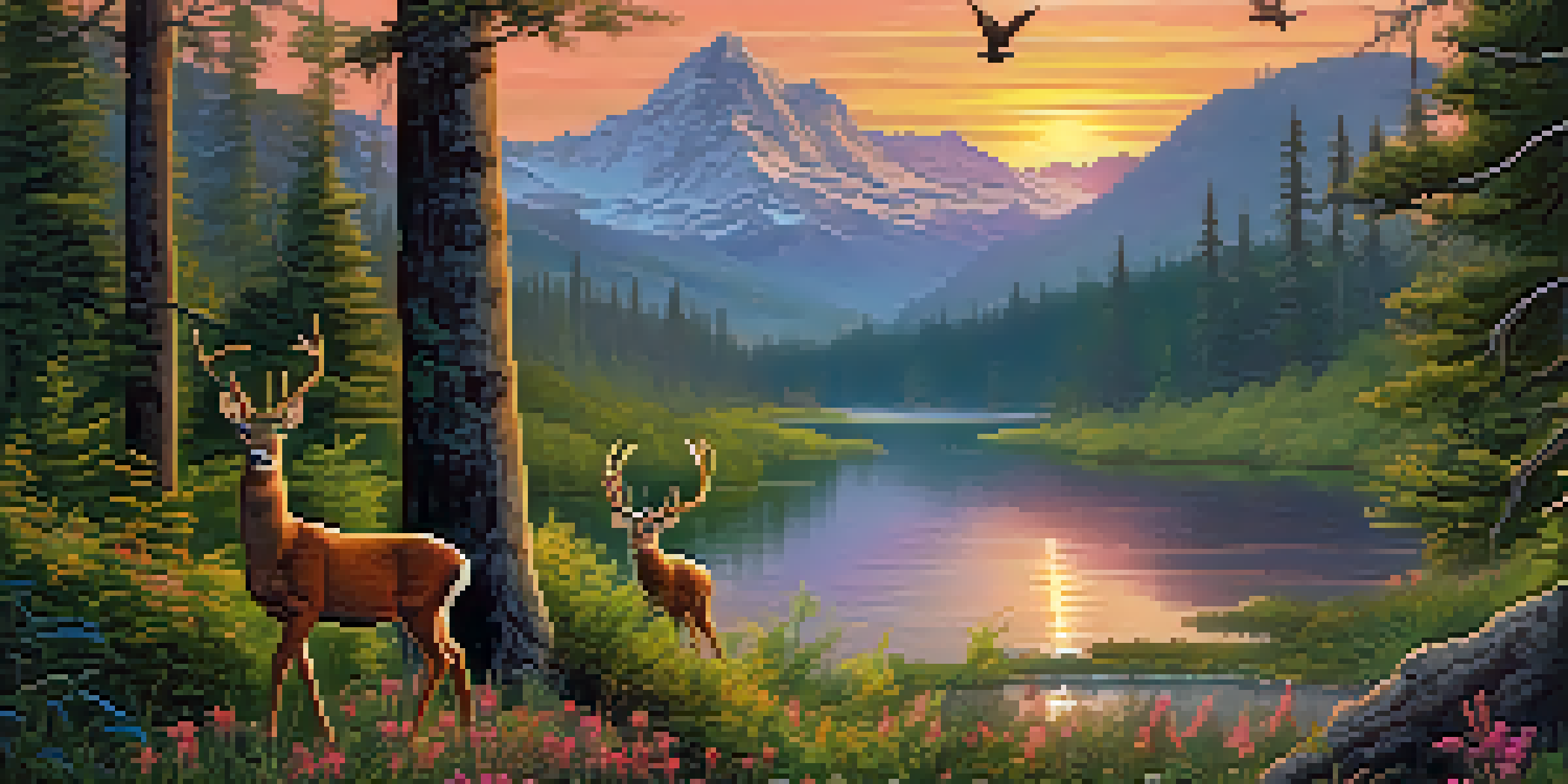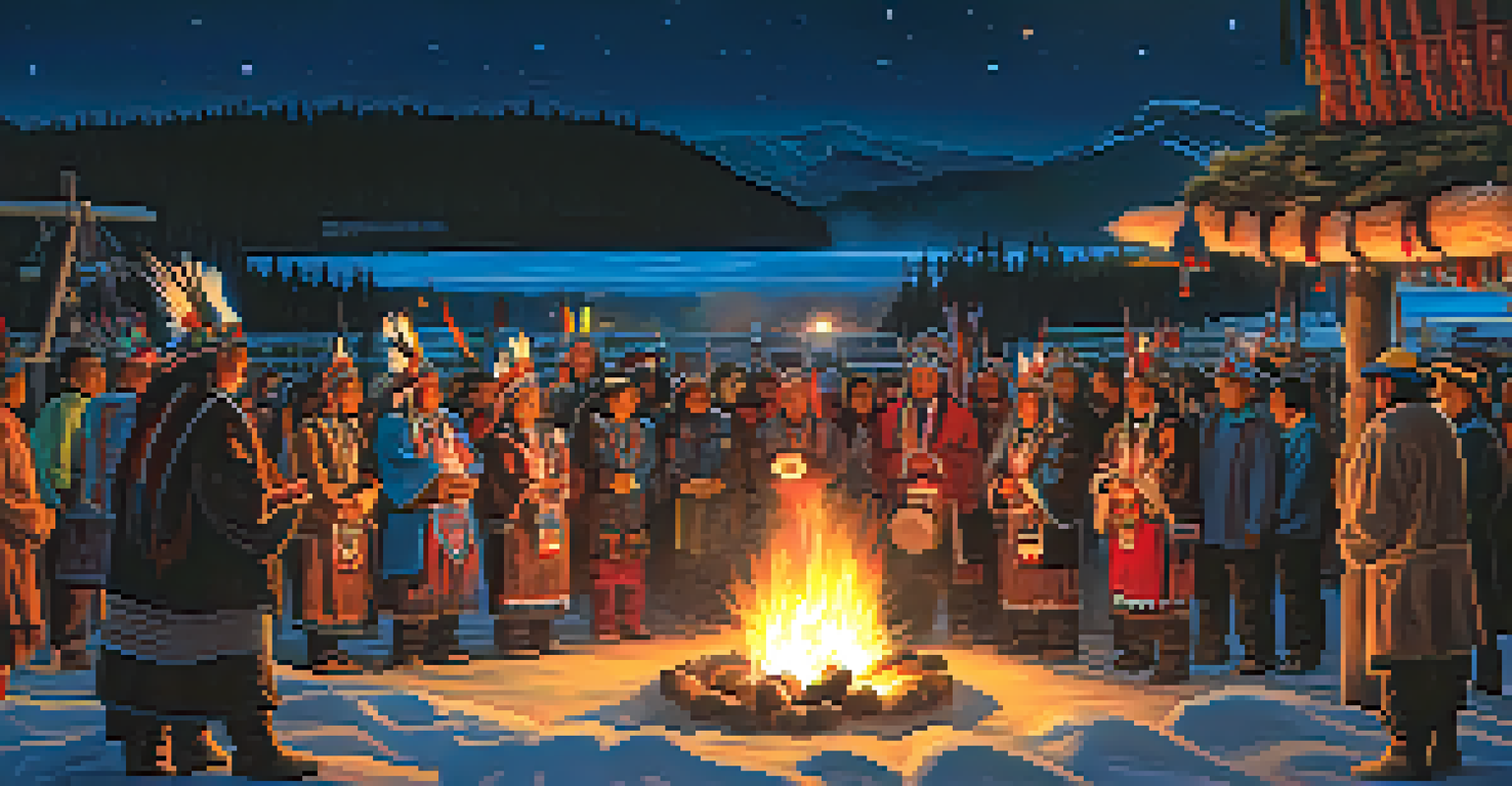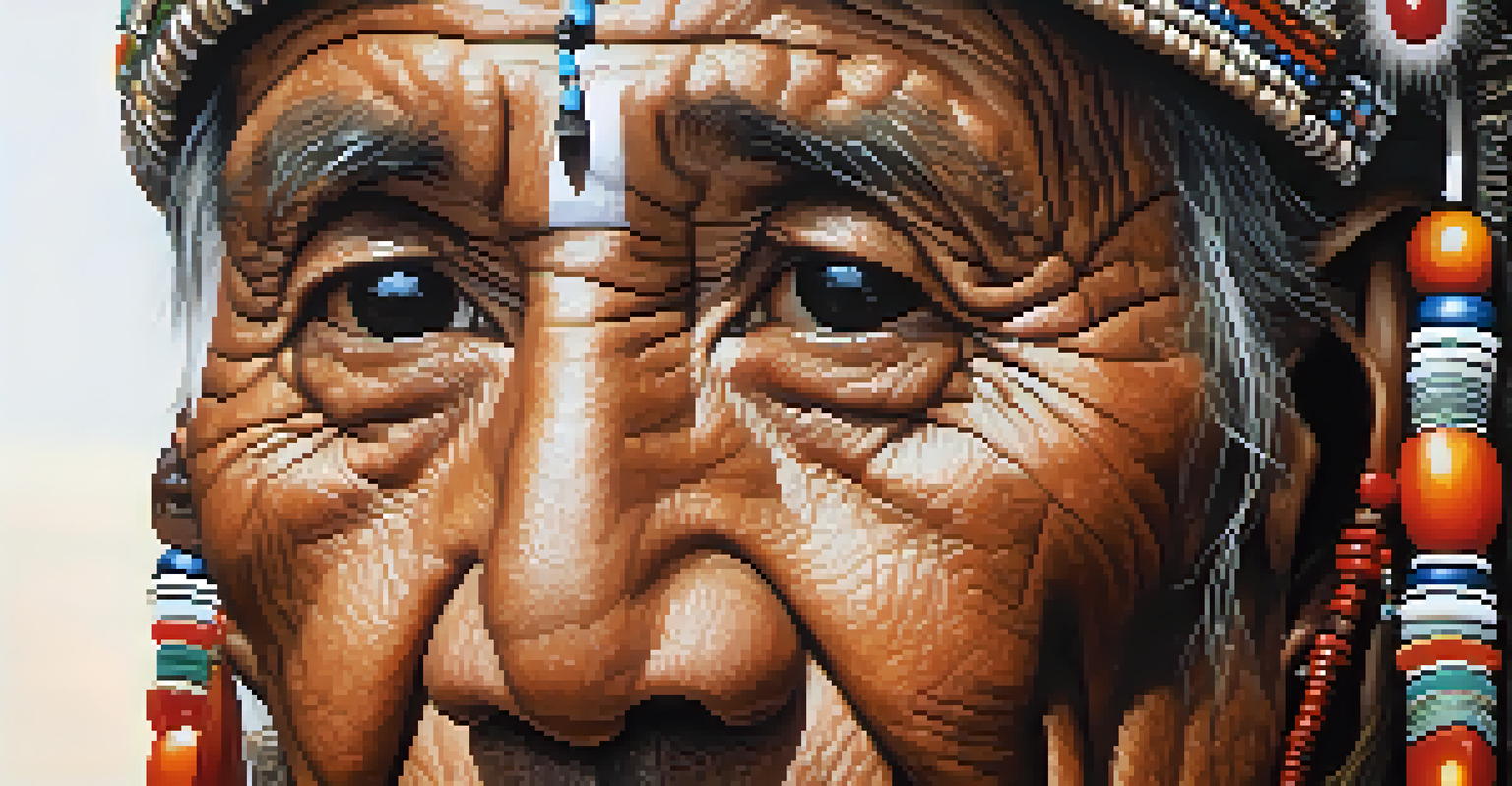Indigenous Views on the Soul and the Cycle of Life

Understanding the Soul in Indigenous Cultures
In many Indigenous cultures, the soul is viewed as a vital and sacred aspect of existence. Unlike a singular entity, the soul is often believed to be interconnected with all living beings and the natural world. This perspective fosters a deep respect for nature, as every element is seen as having its own spirit or essence.
We do not inherit the earth from our ancestors; we borrow it from our children.
For instance, the Anishinaabe people see the soul as part of a larger web of life, where every creature contributes to a collective consciousness. This holistic view encourages individuals to honor their relationships with other beings, emphasizing that actions impacting one part of the web affect the whole.
Consequently, this understanding shapes cultural practices, rituals, and storytelling, reflecting the profound connection between the soul and the environment. It reinforces the idea that caring for the earth is inherently tied to caring for oneself and one’s community.
The Cycle of Life: A Central Tenet
Many Indigenous traditions embrace the concept of the cycle of life, which signifies the continuous flow of birth, death, and rebirth. This cyclical understanding contrasts sharply with linear views of existence, highlighting the importance of seasons, natural rhythms, and spiritual transitions. It suggests that death is not an end, but rather a transformation.

For example, the Lakota Sioux speak of the 'Wakȟáŋ Tȟáŋka,' or Great Spirit, who oversees the cycle of life, guiding souls through various stages. This belief system encourages individuals to see their lives as part of a broader narrative that extends beyond their physical existence.
Interconnectedness of All Life
Indigenous cultures view the soul as part of a larger web of life, emphasizing the importance of relationships with nature and other beings.
This perspective fosters resilience and acceptance, helping people navigate grief and loss by understanding that life continues in different forms. The cycle of life is a reminder that every ending is also a new beginning, both for individuals and for the community as a whole.
The Role of Ancestral Spirits
Ancestral spirits hold a significant place in many Indigenous belief systems, often viewed as guardians who guide the living. These spirits are believed to influence the present and the future, reminding individuals of their roots and responsibilities. The presence of ancestors provides comfort and a sense of continuity.
The land is alive, and it is a part of us, and we are a part of it.
For instance, in many Native American tribes, ceremonies are held to honor ancestors, inviting their wisdom and blessings into daily life. This practice reinforces the idea that the relationship with one's ancestors is an ongoing dialogue, where both past and present intertwine.
By acknowledging and celebrating ancestral connections, communities strengthen their identity and cultural heritage. This emphasis on the collective memory helps individuals understand their place within the larger narrative of life, fostering a sense of belonging.
Lessons from Nature: The Teacher
Nature is often seen as a powerful teacher in Indigenous cultures, providing lessons about the soul and the cycle of life. The changing seasons, the life cycles of plants and animals, and the interconnectedness of ecosystems all serve as metaphors for human existence. Observing nature encourages reflection on one's own life journey.
For example, the teachings of the Hopi tribe emphasize the importance of living in harmony with the land. They observe how plants die in winter only to bloom again in spring, symbolizing renewal and the potential for growth after hardship.
Cyclical Nature of Existence
The cycle of life in Indigenous traditions highlights the continuous flow of birth, death, and rebirth, encouraging resilience and acceptance.
By learning from nature, individuals are reminded that they, too, are part of a larger cycle. This connection instills a sense of responsibility to care for the environment, as the health of the land directly impacts the health of the soul.
Rituals and Practices: Honoring the Soul
Rituals play a crucial role in Indigenous cultures, serving as a means to honor the soul and the life cycle. These practices often involve storytelling, music, dance, and ceremonies that celebrate significant life events such as birth, coming of age, and death. They create sacred spaces for reflection and connection.
For instance, the potlatch ceremony among the Indigenous peoples of the Pacific Northwest involves sharing resources and honoring relationships. It reinforces community bonds while celebrating the contributions of individuals, highlighting the interconnectedness of life.
Through these rituals, communities collectively acknowledge the importance of the soul's journey. They create a sense of belonging, reminding individuals that they are part of something greater than themselves.
The Impact of Colonization on Indigenous Beliefs
Colonization has profoundly affected Indigenous views on the soul and the cycle of life. Many traditional practices and beliefs were suppressed or lost due to the imposition of foreign religions and societal structures. This disruption has led to a crisis of identity for many Indigenous communities.
However, there has been a resurgence of interest in reclaiming and revitalizing these cultural beliefs. Many tribes are working to restore traditional practices, which fosters healing and a renewed connection to their heritage.
Revitalizing Ancestral Wisdom
Despite the impacts of colonization, many Indigenous communities are reclaiming their cultural beliefs and practices to foster healing and identity.
This revitalization is not just about preserving the past; it's about affirming their identity and sovereignty in the present. The journey toward healing involves acknowledging the wounds of colonization while also celebrating the resilience and strength of Indigenous cultures.
Looking Forward: A Hopeful Perspective
Despite the challenges faced by Indigenous communities, there is a hopeful outlook for the future. Many Indigenous people are actively working to share their beliefs and practices with broader society, fostering understanding and respect. Education and dialogue are key to bridging cultural gaps.
For instance, Indigenous-led initiatives often emphasize environmental stewardship, drawing on traditional knowledge to address contemporary issues like climate change. This approach not only honors Indigenous wisdom but also offers valuable insights for all of humanity.

By embracing these perspectives, we can cultivate a more inclusive understanding of life and the environment. This collaboration paves the way for a future where Indigenous views on the soul and the cycle of life are recognized and celebrated.